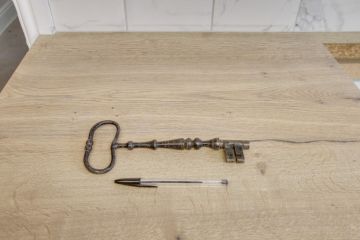View deductions with care

When the interest on the mortgage and other expenses are greater than the rent, the shortfall is used to reduce the investor’s tax bill.
Property investors are happy to make a loss on their investment as they hope to make up for it when they sell and reap a capital gain.
In 2007-08, investors reported tax losses of $8.6 billion – or an average loss of $5375 a property. A year earlier, the reported tax losses were $5.6 billion – or $3733 a property.
Baby boomers are behind the increases in the amount of tax losses being reported, says a regional director with tax accountants H&R Block, Frank Brass. “They want diversification, given the volatility on sharemarkets,” he says.
But the Tax Office finds many landlords understate their rental income and overclaim deductions. The single biggest deduction for most people who have borrowed to invest is the mortgage interest costs.
That should be easy to report in tax returns as the amount of interest is given in the lenders’ statements. The problem is many landlords claim the interest costs for the whole year when the landlord is using the property personally for part of it.
A claim can only be made for that portion of the year when it was rented or available for rent, Brass says.
Another problem area is confusing repairs with improvements. Improvements such as the remodelling of a bathroom or replacing an old stove are capital costs, which cannot be claimed.
A repair, which can be claimed, is defined by the ATO as “restoring something to a working condition”: it cannot be better than before.
While capital costs cannot be claimed as a deduction, they can be depreciated. The Tax Office recognises stoves and carpets can lose their value over time.
It has a schedule of more than 150 types of items and a “depreciation” life for them. Even the building itself can be depreciated.
For those investors with apartments, a building surveyor can write a report showing what can be depreciated. The fee is deductible.
One type of claim investors commonly overlook, Brass says, are the expenses incurred when buying the property.
“You are able to claim one-fifth of the borrowing expenses for the first five years after purchasing the property.”
These borrowing expenses include the stamp duty and the legal expenses on the mortgage but not the stamp duty or legal expenses of the transfer of the property itself.
Property price growth is now flat in Sydney and Melbourne as higher interest rates begin to hurt.
No one should assume that generous tax deductions automatically lead to riches further down the road. And the greater the debt, the higher the risk to vulnerable households.
The Tax Office has a guide called Rental Properties 2009, which can be downloaded from its website.
We recommend
We thought you might like
States
Capital Cities
Capital Cities - Rentals
Popular Areas
Allhomes
More







